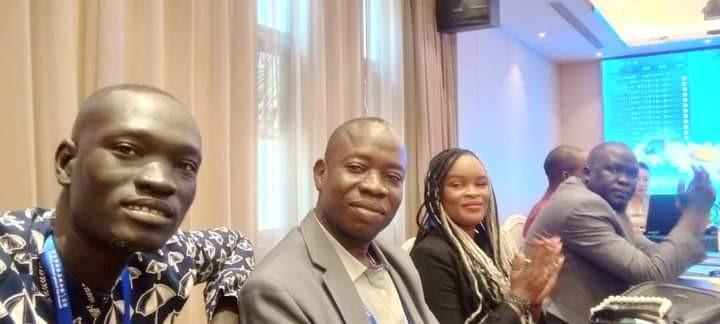Several South Sudanese journalists and media managers say a Chinese exchange program has helped them improve their technical skills and expand their understanding of digital media practices.
Each year, China invites South Sudanese journalists to visit various cities, where they tour media institutions, attend lectures on China’s media landscape, and visit cultural and historical sites.
Kelly Abale, a technician at Juba Echo TV, told Radio Tamazuj that his 2023 visit enhanced his ability to manage broadcast equipment. “The training helped me understand how Chinese media operate and the tools they use,” Abale said. “We later acquired similar equipment, making my work more efficient.”
He also noted the cultural exposure, including visiting the origins of green tea consumed in South Sudan.
Yiep Joseph, a reporter at Number One Citizen Daily, said the program introduced him to new digital tools, including AI-based journalism software. “Applying these tools has made our work faster and more accurate,” he said.
Emmanuel Deng, a videographer at Juba Echo TV, said he learned fact-checking techniques that improved his reporting. “Before, my work was more of a gamble. Now, I verify information with multiple sources,” he said.
Emmanuel Monychol Akop, editor-in-chief of Dawn Newspaper, said the program helped his publication launch a website and shift toward more impactful storytelling. “We now focus on stories that affect ordinary South Sudanese, not just politics,” he said.
Oyet Patrick, president of the Union of Journalists of South Sudan (UJOSS), praised the program’s practical approach.
“Seeing how media operate in other countries is more useful than classroom training,” he said. However, he suggested extending the program’s duration and allowing participants to work temporarily in Chinese newsrooms for deeper immersion.
However, Dr. Abraham Kuol Nyuon, a political science lecturer at the University of Juba, urged scrutiny of China’s exchange initiatives. “If China wants to help, training should meet international standards and avoid isolating students from local contexts,” he said.
“While a non-interference policy can be beneficial in certain situations, it may result in overlooking human rights abuses or government corruption,” he concluded.




